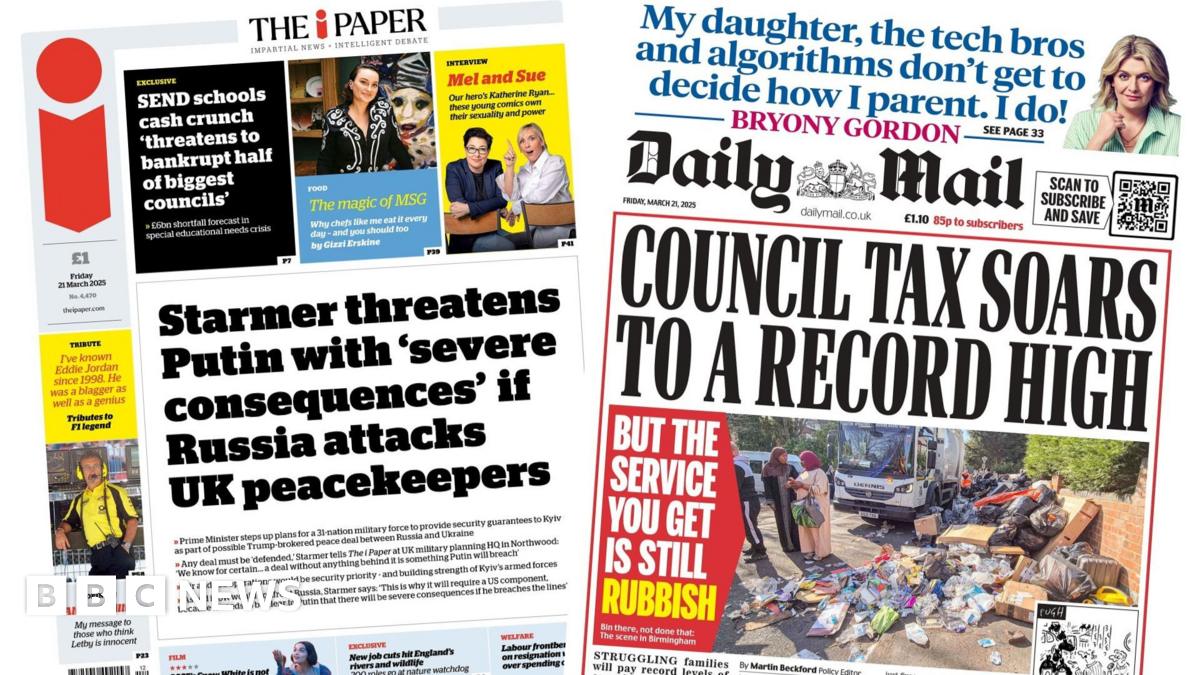High Taxes, High Stakes: Starmer's Shadow Looms Over Putin's Gamble
The ongoing war in Ukraine casts a long shadow, impacting global economies and political landscapes in profound ways. Nowhere is this more evident than in the UK, where Keir Starmer's Labour Party is capitalizing on public anxieties surrounding high taxes and the perceived economic mismanagement linked to the conflict's ripple effects. This article delves into the complex interplay between the escalating tax burden on British citizens, the geopolitical risks stemming from Putin's actions, and the political maneuvering of the Labour leader.
The Tax Burden: A Growing Concern
The UK is grappling with a cost-of-living crisis, fueled in part by soaring inflation and energy prices, directly linked to the global instability caused by the war in Ukraine. This has led to a significant increase in the tax burden on ordinary citizens, with many feeling the pinch.
- Increased National Insurance Contributions: Recent increases in National Insurance have added to the financial strain on households, impacting both disposable income and consumer spending.
- Inflationary Pressures: The war has exacerbated existing inflationary pressures, driving up the cost of essential goods and services, further reducing the real value of income after taxes.
- Energy Crisis Fallout: The UK's dependence on global energy markets makes it particularly vulnerable to price volatility, leading to high energy bills and impacting household budgets.
This economic hardship has become a key battleground in the political arena, providing fertile ground for opposition leader Keir Starmer to challenge the current government's economic policies.
Starmer's Strategy: Targeting Economic Vulnerability
Keir Starmer is aggressively leveraging public discontent over high taxes and the economic fallout from the Ukraine conflict. His strategy centers on portraying the Conservative government as incompetent in managing the economy and failing to adequately support the British people during this difficult period.
- Promising Tax Cuts: Labour's proposals often highlight potential tax cuts, promising relief for struggling families and businesses.
- Highlighting Economic Incompetence: Starmer consistently criticizes the government's handling of the economy, emphasizing the negative impact of high taxes on everyday life.
- Focusing on Public Services: Labour's messaging often links underfunded public services to the government's economic mismanagement, further fueling public dissatisfaction.
Putin's Gamble: Global Implications and Domestic Backlash
Vladimir Putin's invasion of Ukraine represents a significant geopolitical gamble with far-reaching consequences. Beyond the humanitarian crisis, the war has fueled economic instability globally, contributing to the high inflation and energy crisis impacting the UK. The sanctions imposed on Russia have also had unintended consequences, adding to the complexity of the economic situation.
The Intertwined Narratives: Starmer and Putin
While seemingly disparate, the narrative surrounding high taxes in the UK and Putin's actions in Ukraine are inextricably linked. The economic instability fueled by the war provides the backdrop for Starmer's political attacks, allowing him to frame the government's economic policies as inadequate and failing to protect citizens from the consequences of global events. This creates a powerful political narrative, resonating with voters who are feeling the pressure of rising living costs.
Conclusion: Navigating Uncertain Times
The high tax burden in the UK, exacerbated by the global implications of Putin's war in Ukraine, presents a significant challenge for the current government. Keir Starmer's strategic exploitation of this economic vulnerability highlights the complex interplay between geopolitical events and domestic politics. As the UK navigates these uncertain times, the debate over taxes and economic management is likely to remain a central theme in the political landscape. This situation underscores the need for comprehensive economic planning and robust strategies to mitigate the impact of global crises on ordinary citizens.
Keywords: Keir Starmer, Vladimir Putin, High Taxes, UK Economy, Cost of Living Crisis, Ukraine War, Inflation, National Insurance, Labour Party, Conservative Party, Geopolitics, Economic Management, Tax Cuts, Political Strategy.
